The three-year old Catholic Parish overseen by the Missionary Community of St. John the Apostle was created with the aim of working towards peace among the Turkana people in Kibish and the two other pastoralist communities across Kenya’s borders.
“Lodwar Diocese has been praying for peace among the three communities for years. Three years ago, the Bishop decided to create this Parish to become the epicenter of peace in this region,” Fr. Githinji says.
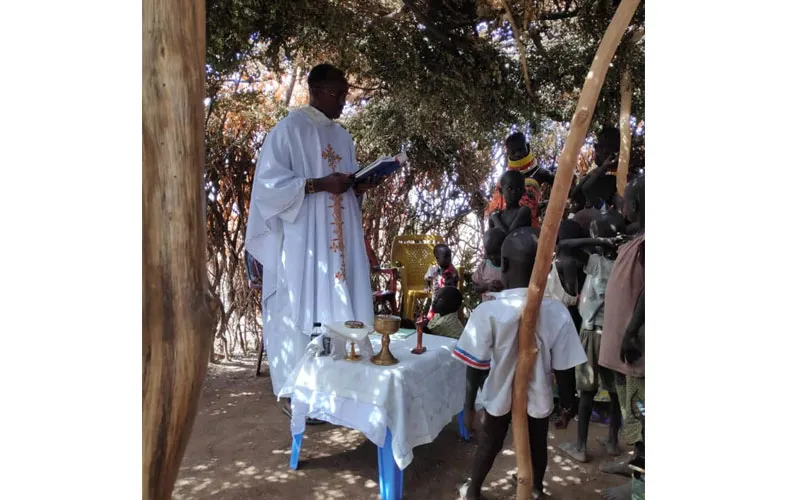 Fr. Joseph Githinji presiding over Holy Mass
Fr. Joseph Githinji presiding over Holy Mass
For a long time, the Kenyan government has invested heavily towards peace along its Northern border with minimal success, the 46-year-old Priest says, adding that the government has always shown lack of commitment in the peace initiatives.
“The Kenyan government has spent a lot of money on projects aimed at improving the wellbeing of the people here to dissuade them from cattle rustling but the projects always fail,” Fr. Githinji tells ACI Africa, and explains, “Many times, the projects are started and abandoned along the way. Most of the time, the local community is never consulted before the projects are initiated.”
(Story continues below)
“I have seen huge agricultural projects that were started and abandoned. I have seen huge water panels in large fields that were purchased many years ago for agriculture and boreholes they started drilling and abandoned midway. Most government projects are never monitored to completion. Locals are promised projects which are never delivered,” he says.
The approach that the Parish has taken is promoting education and farming activities among the Turkana to help them embrace alternative sources of livelihoods, away from cattle rustling.
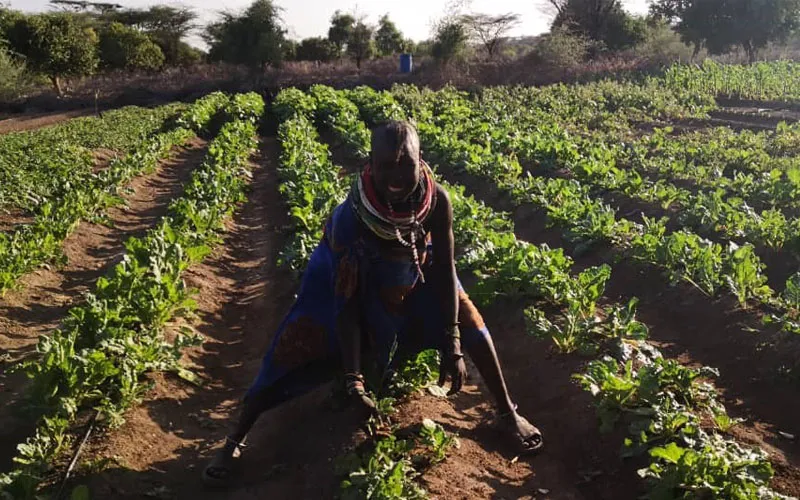
The Parish has a nursery and primary school where children are supported to attend classes.
There are three Priests ministering at the Parish. They oversee the “Mother and Child Centre” feeding program at the school to encourage the Turkana children to attend school every day. Fr. Githinji says that without food, children are less motivated to attend their classes.
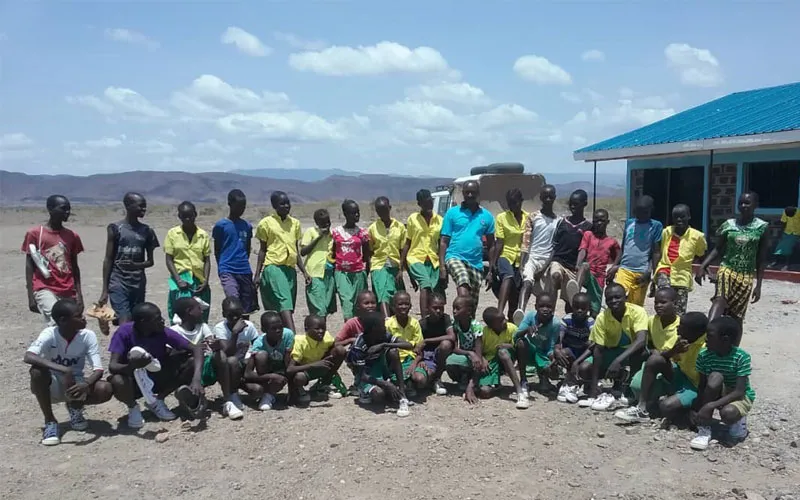
“The common and perhaps only meal here is milk, which is mixed with blood. Most of the time, the children have only one such meal in their homes because there is hardly anything else to eat,” the member of the Missionaries of St. John says, and adds, “Children who come to our schools are given breakfast before they start learning. They also eat before they go to their homes. This encourages them to come to school every day.”
Fr. Githinji says that the members of the Kenyan pastoralist community choose starvation over slaughtering some of their cattle.
“Here, people value their cattle to the extent that some starve and leave large herds of cows and goats. The only thing they get from the cattle is milk and blood. Sometimes, they slaughter a small goat and it is never enough for the entire family,” he says.
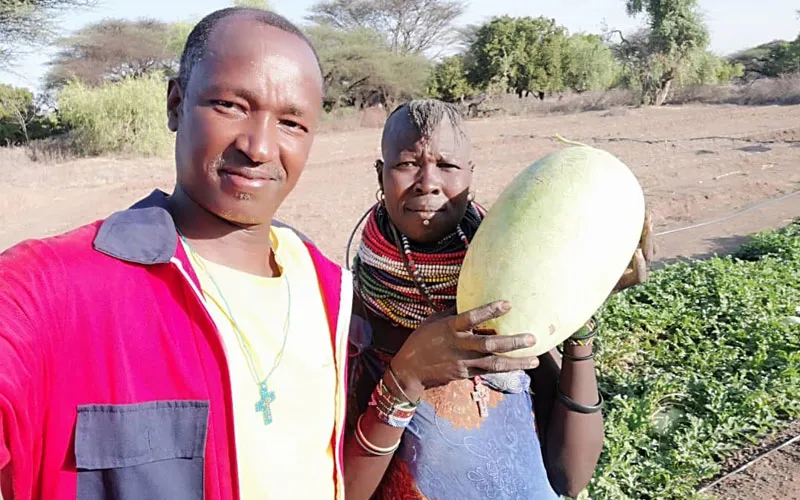
Recalling a past hunger crisis among the Turkana, the Priest says, “There was a time that government officials came here and started buying cows and goats from the locals. They slaughtered the animals and gave the people their meat back. That was the only way to help since they were starving yet they had food.”
One of the challenges for school-going children in Kibish is the lack of post-primary institutions, Fr. Githinji says, and explains, “We do not have any secondary schools around yet. In fact, there are only two secondary schools in the whole Deanery. Two belong to the Catholic Church while one is run by the Salvation Army.”
The native of Kenya’s Murang’a Diocese tells ACI Africa that the Catholic Church is playing a major role in the development of one of marginalized communities in Kenya. He says that a majority of households in Lodwar are Catholic.
“Even the government acknowledges the role of the Catholic Church in Lodwar. Amid the challenges we endure here, the Catholic Church is the most vibrant in this part of Kenya,” he says.
“The people here have many challenges. Many of them are very poor and they live a day at a time with very little to eat. But they are very prayerful and humble,” Fr. Githinji says, and discloses that the people’s humility and poverty is what inspired him to become a Priest in the Catholic Church.
“I first came here to do a casual job after completing primary school. My mother brought us up single handedly and didn’t have the means to take me to secondary school. But while working on construction projects among the Turkana in 1995, I was attracted to the people’s humility and poverty and decided to become a missionary,” he shares.
The Priest who ministered in South Sudan for 10 years before being sent to minister among the Turkana community says that missionaries in the region run a model farm where locals come to get farming tips.
“We grow vegetables, tomatoes, watermelons and grains. Many people come here to get farming tips and are given seeds and other support they need to start farming. Our aim is to show them that they can get food from the farm as well,” he says.
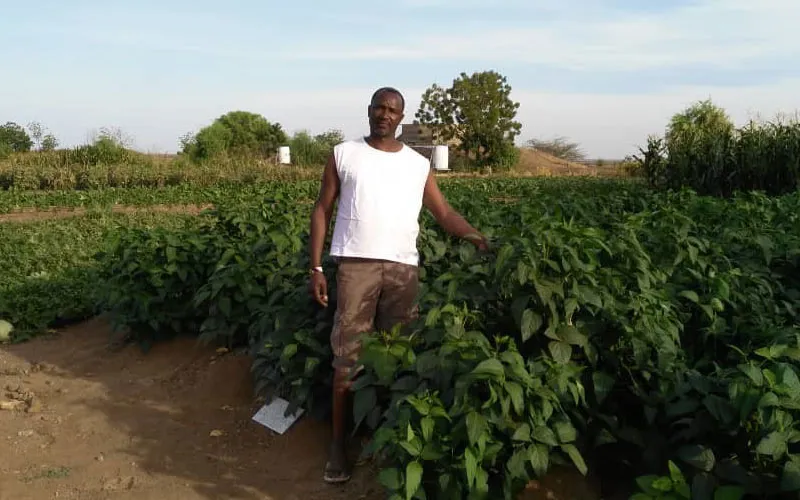
The Priests have also introduced farming lessons in schools to help the Turkana children grow with the knowledge that they can get food from the farm.
“We have also been trying to plant trees that can survive in this dry climate especially along Lake Turkana. We hope that the community can follow suit,” Fr. Githinji says, and adds, “I believe that with the necessary support, agriculture will be at the heart of this region in some 50 years to come.”
Meanwhile, the leadership of St. Joachim and Anne Parish is planning a follow up to the July 15 march, which will see elders from Ethiopia participate in social activities at the Kenyan Catholic Parish.
Fr. Githinji says that activities of the get-together will include the celebration of thanksgiving Holy Mass and cultural presentations.
“We will be thanking God for the milestone we have achieved so far in our quest for peace,” he told ACI Africa August 2, and added, “There will be talks after Mass, sharing of a meal and entertainment, which will see attendees showcase their talents for the two communities to learn more about each other.”
Agnes Aineah is a Kenyan journalist with a background in digital and newspaper reporting. She holds a Master of Arts in Digital Journalism from the Aga Khan University, Graduate School of Media and Communications and a Bachelor's Degree in Linguistics, Media and Communications from Kenya's Moi University. Agnes currently serves as a journalist for ACI Africa.
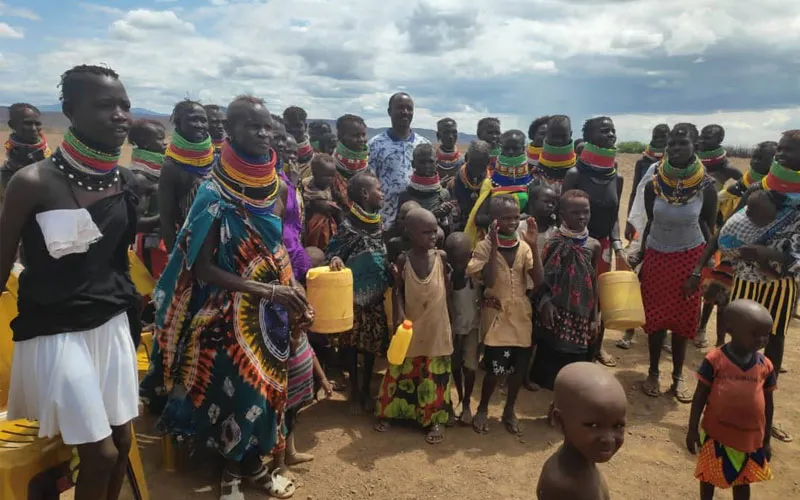 Section of inhabitants of Kenya's Lodwar Diocese
Section of inhabitants of Kenya's Lodwar Diocese


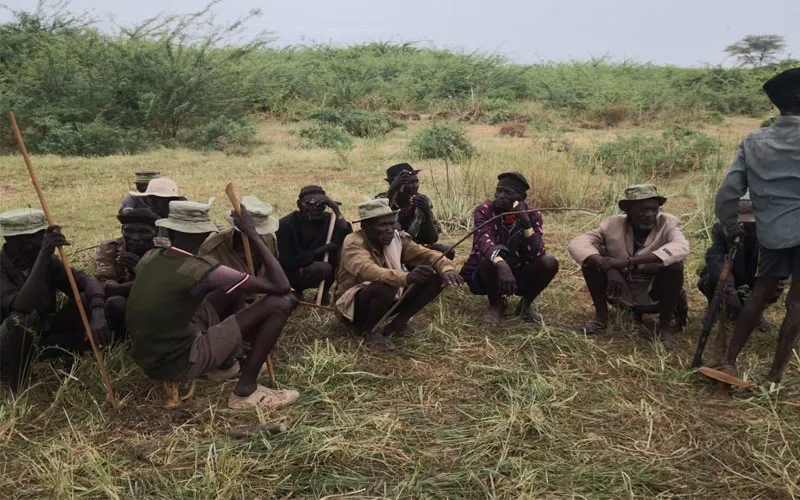
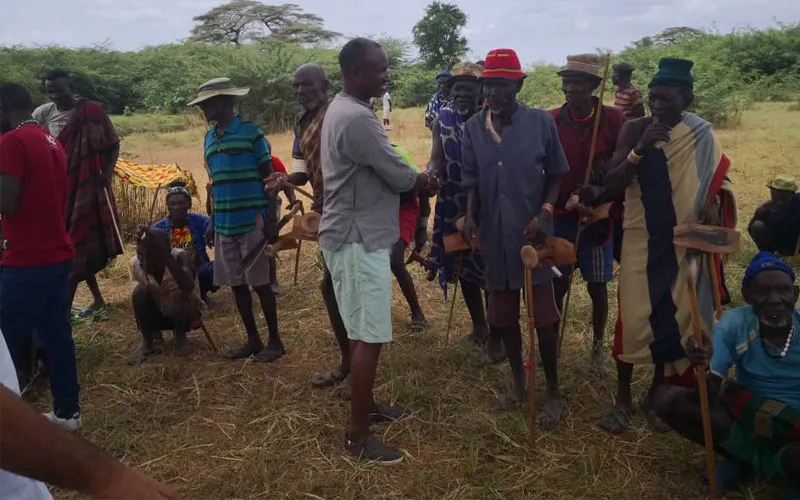

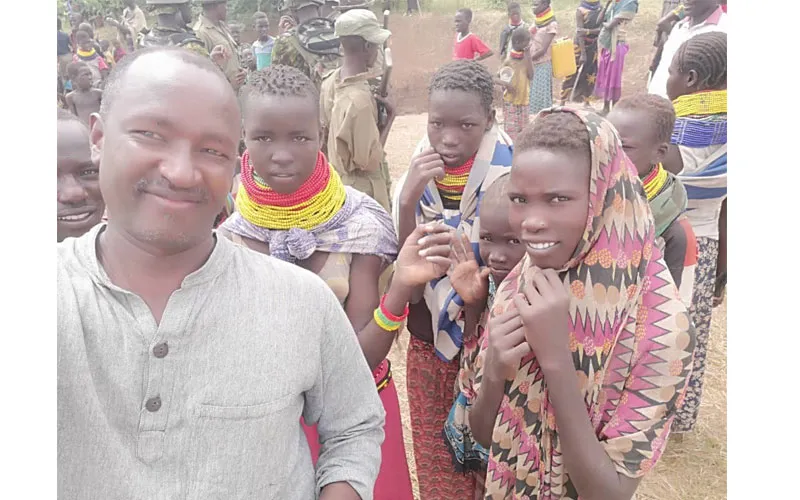
 Fr. Joseph Githinji presiding over Holy Mass
Fr. Joseph Githinji presiding over Holy Mass






